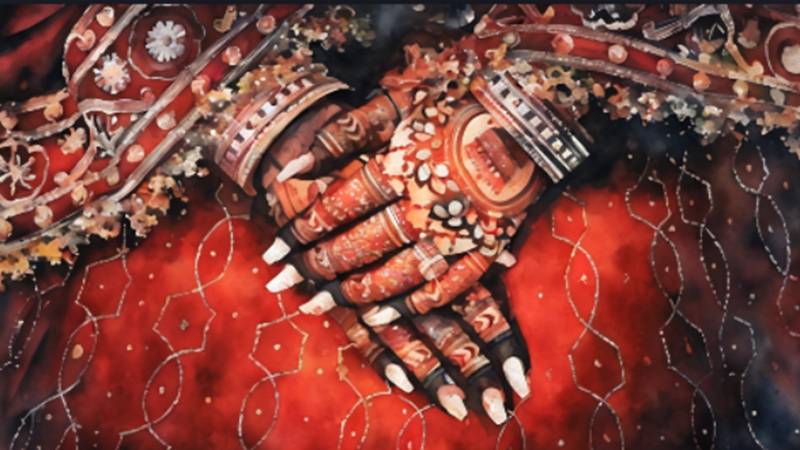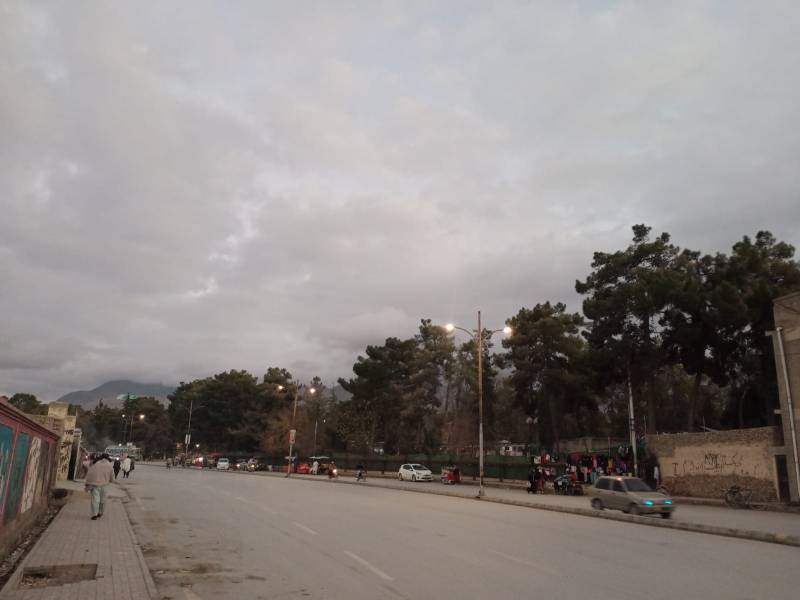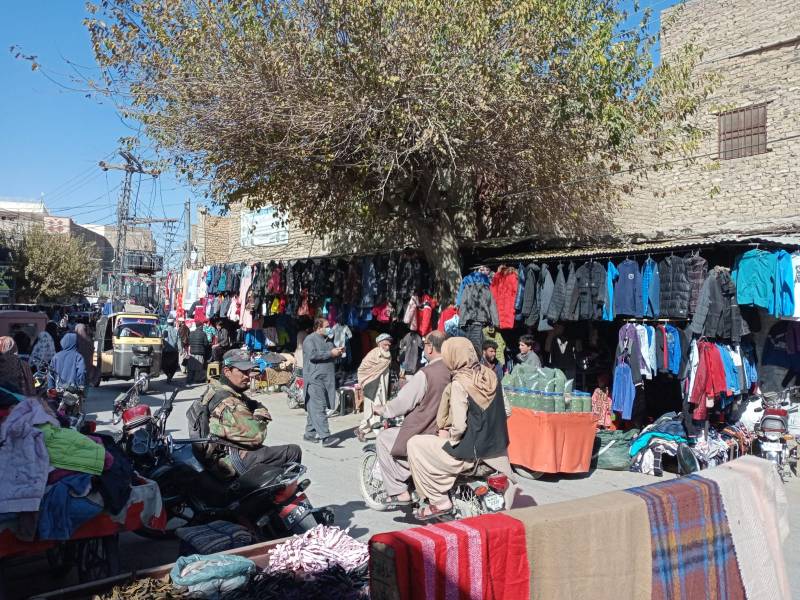
The knock on the door was so harsh that it startled everyone inside. Hurra opened it immediately, only to find her aunt’s husband standing outside with a gun, accompanied by a man named Shahid holding a grenade. His voice was loud and slurred. “Where is my wife? You’ve hidden her here. Call her out!” he shouted.
Hurra, shaken, called her mother and grandmother for help. The man was intoxicated, his aggression unrelenting. Sensing danger, Hurra quickly called the police. Within ten minutes, officers arrived at the scene. The man accused them of hiding his wife, claiming she had been abducted. The police began their search.
Her face pale, her hands shaking as she murmured to herself trembling and sitting in the edge of room. It was 03 February 2023—a day Raima will never forget. That morning, she had fled her home in desperation, unprepared for what lay ahead. She found herself in Mariabad, Quetta, with nowhere to go. Seeking refuge, she begged the caretaker of a mosque to let her stay for one night.
Raima’s journey of suffering began much earlier. She was only 15 years old, a seventh-grader, when she was married off. On the night of her ‘mehndi,’ she discovered her fiancé was drunk. Yet, she chose to remain silent, thinking things would improve. Five days after her marriage, her husband slapped her in a fit of rage. “I realised he drank heavily, smoked marijuana, and even mixed dead scorpions into his cigarettes. He abused me physically and mentally, tearing my clothes and forcing me to beg for money to support his addiction,” Raima recounts.
Raima’s life became a series of humiliations and horrors. She was forbidden from visiting her parents, even when her father passed away from a heart attack. “I wasn’t allowed to see him for the last time. I stayed silent because I couldn’t bear the thought of burdening my old mother and younger brother or facing societal judgment. Who would take care of my children if I left?” she says.
Stories like Raima’s are far too common. According to a UNFPA report, 56% of women who experience physical or sexual violence never seek help. Socio-cultural barriers, financial dependency, and a lack of support systems such as healthcare and psychosocial services trap countless women in cycles of abuse.
Raima’s home life grew increasingly toxic over the years. She bore four children—three sons and a daughter. Her eldest son, now eighteen, fell into the same cycle of addiction as his father. “My husband would smoke ice at home, often with friends. My son started using it too, under his father’s influence. One night, after an argument, my son yelled at his father, ‘Look! Tonight, I’ve proven you right. What will you do now?’ It shattered me,” Raima says.
Her daughter Aimen, meanwhile, struggled in school. Teachers noticed her lack of focus and exhaustion. When they demanded to meet her mother, Raima’s sister had to explain that she was not allowed to leave the house. The teachers were left speechless.
Desperate, Raima admitted her husband and son to a rehabilitation centre, hoping for change. However, her mother-in-law insisted on bringing them home prematurely. Both relapsed almost immediately. “As soon as my husband returned, he sought out drugs again. My son followed suit a week later. No one could imagine the nightmare I was living,” Raima says.
She was only 15 years old, a seventh-grader, when she was married off. On the night of her ‘mehndi,’ she discovered her fiancé was drunk. Yet, she chose to remain silent, thinking things would improve. Five days after her marriage, her husband slapped her in a fit of rage
The situation worsened when her husband tried to convince her to use ice, saying it would help her escape her pain. Raima eventually gave in and became addicted herself. I took ice for eleven months. “We travelled to dangerous areas—Hajiabad, Mashriqi Bypass, Shaal Dara, and Kasi Qabristan—to buy ice (crystal myth),” she recalls.

The final straw came when she overheard her husband planning to sell her for 1.5 million rupees. “At first, I thought it was a joke. But when I heard him discussing the deal with someone, I knew I had to escape,” Raima says. With help from a relative, she fled to her mother’s home. She filed for divorce from his husband.
After divorce, her ex-husband continued to harass her, showing up at her house and threatening her family.
“We called the police several times, but by the time they arrived, he would escape. Now, they’ve started making excuses, saying there’s no vehicle available,” she says.
Delayed justice and no laws or the late served justice always create more stress for the women in a patriarchal society. “Laws must be enforced and not just discussed. Practical implementation at every level—central, provincial, and societal—is crucial.” says Dr Babrak Niaz, Head of the Media Studies Department at UOB.
Raima fears for her children’s safety. “Strangers come to our house for drugs. My daughter isn’t safe in such an environment. How can I fight for custody of my children without any support?” she asks.
Experts believe that systemic change is essential to combat gender-based violence. “It’s not just a violation of human rights; it’s an obstacle to societal progress,” says Mr Usman, secretary, Women Development Department.
Raima’s story is a stark reminder of the urgent need for action. As Usman Ahmed, Secretary of the Women Development Department, puts it, “We must stand united to end this injustice. Gender-based violence must not be tolerated in any form.”
Her story is not just one of suffering—it is also one of remarkable resilience and courage. Despite enduring years of abuse, isolation, and unimaginable pain, she found the strength to rise above her circumstances. Her decision to flee an abusive marriage, file for divorce, and confront the challenges of rebuilding her life demonstrates her indomitable spirit. Raima is not a victim; she is a survivor and a hero. Her unwavering determination to protect her children, even when faced with relentless harassment, is a testament to her bravery.

Gender-Based Violence (GBV) is a pervasive issue that transcends borders, affecting millions of women and girls worldwide. Rooted in deep-seated inequalities, it manifests in various forms, from domestic abuse to economic and psychological control. Despite global efforts to combat this injustice, cultural and systemic barriers often prevent survivors from seeking help, leaving them trapped in cycles of violence.
In Pakistan, the problem is no less severe, where patriarchal norms and socio-economic challenges exacerbate the situation. Women like Raima, whose lives are marred by physical, emotional, and societal abuse, reflect the silent struggles faced by countless others. Their stories highlight the urgent need for action to address GBV at every level of society.

